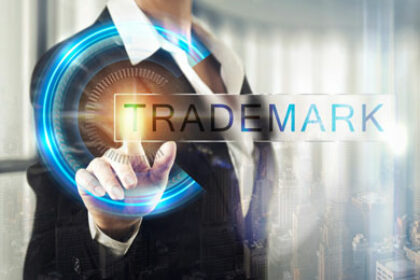
Article written by Danmari Duguid, Associate at Schindlers SI
INTRODUCTION
The Trade Marks Act 94 of 1993 defines a trademark as a mark used or proposed to be used by a person, in relation to goods or services for the purpose of distinguishing the goods or services in relation to which the mark is used or proposed to be used, from the same kind of goods or services connected in the course of trade with any other person.
In other words, a trademark is a mark used to distinguish a product or service from the product or services of competitors within that trade. Therefore, trademarks promote enterprise by rewarding their owner with recognition and profits in return. This system also assists with protecting a brand’s mark from being used by counterfeiters to sell inferior or different products or services to the public.
A brand name is a word or combination of words, such as “Kentucky Fried Chicken”; a slogan is a short phrase or a sentence; and a logo is a distinctive picture or symbol. They provide a unique identity in the marketplace and can apply to both products and services.
DO I NEED A TRADEMARK?
Anyone who has, or will, invest time and money in marketing their business and building their brand, should be applying for a trademark so that the name and/or logo is synonymous with the marketing they are projecting. In addition, we strongly encourage applying for a trademark if you do not want to:
- Loose on the value of a brand by having a third party pass off a similar product or service using a confusingly similar brand or logo;
- Waste time and money on marketing when a third party financially benefit from that expense, not having to expend it themselves; and
- Lose out on the value of a real asset they have created in their brand in event of a merger or sale of the business.
It’s also worth noting that a domain name or registered company name does not afford you the same protection as a registered trademark.
PROTECTION AFFORDED BY REGISTERING A TRADE MARK
Trademarks can only be protected as such and defended or enforced in terms of the Trade Marks Act, if it is registered. Unregistered trademarks may be defended, and the associated rights enforced in terms of the ‘Common Law’.
Registration of a trademark provides the owner with a registration certificate and serves as evidence that he/she/it has the exclusive use of that mark from the date of the certificate being issued, within the applicable jurisdiction. In addition, there are other benefits which accrue to registration, most notably being that an owner can obtain a reasonable royalty as compensation when enforcing ownership rights of the mark or licensing the use thereof, which is not available in respect of unregistered marks, for which an owner is only entitled to claim damages, that are often difficult to quantify. The Counterfeit Goods Act 1997 further affords the owner of intellectual property rights, to take civil or criminal action against a person or company that is involved in counterfeiting.
Common law in turn provides unregistered marks protection, should such a mark have built up goodwill and through established use and come to generally identify such goods or services.
WHO MAY REGISTER A TRADEMARK?
Any person or business that has a name, logo and/or slogan that is distinctive. You do not need to be a South African citizen to register a trademark, but you must be using or intend to use the trademark in South Africa.
You are also required to have an address for service in this country and if you are represented by an agent, this person must be an admitted attorney in South Africa or registered to act as an agent in terms of prior legislation. Trademark applicants may not be represented by auditors or accountants.
The registration of a Trademark may be renewed every 10 (ten) years, upon payment of a prescribed renewal fee.
INTERNATIONAL STATUS?
Trademark registration is territorial and registering a trademark in South Africa does not afford you protection in any other country. Therefore, if you are marketing your product in other countries other than South Africa, it would be in your interests to register your trademark in that territory. Our offices can assist in this regard by being your link of communication to a correspondent in such territory where you seek registration.
CONCLUSION
A trademark is a powerful business asset, and the trademarking process can be complex and burdensome, especially if a query is raised on the application. Contact us today (by emailing us at trademarks@schindlers.co.za) to assist you with your intellectual property needs and ensure your branding remains protected.
Disclaimer: The above is merely a summary of a complex area of the law. Should you have any concerns or queries relating to the enforcement or application of a trademark, kindly contact us on the details provided for a preliminary consult with one of our intellectual property experts. We are committed to providing sound, reliable legal advice.
This article is for general public information and use. It is not to be considered or construed as legal advice. Each matter must be dealt with on a case by case basis and you should consult an attorney before taking any action contemplated herein.

